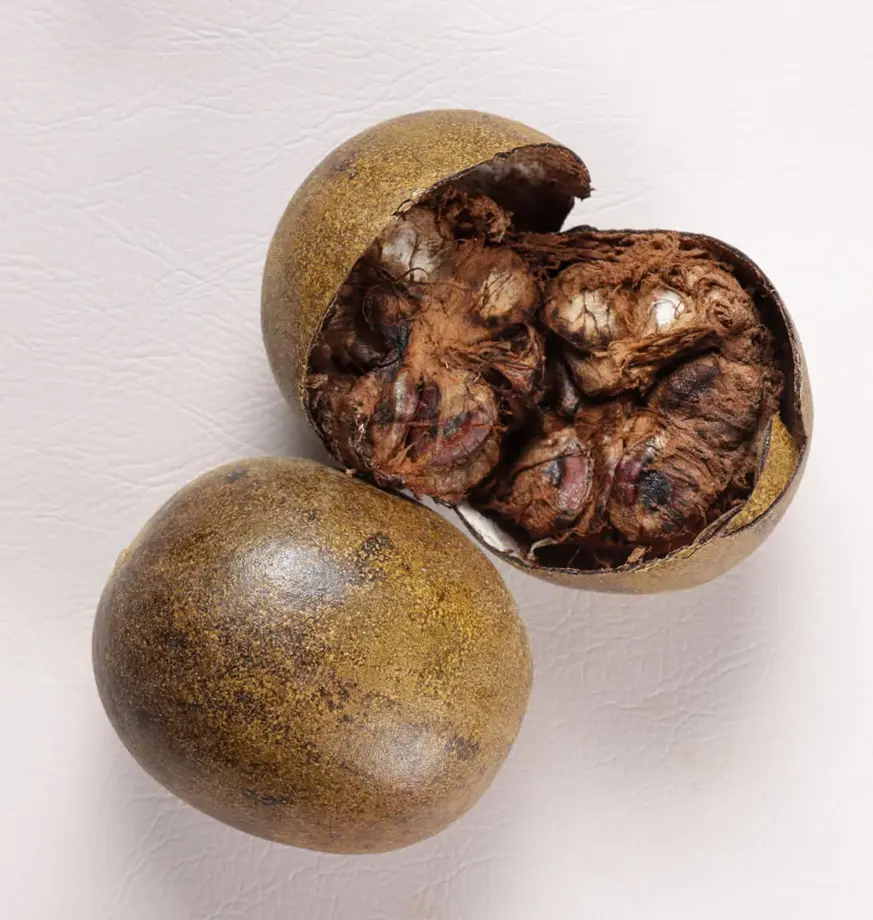Is Sourdough Bread Really Healthy?

This post may contain affiliate links. If you make a purchase through links on our site, we may earn a commission.
Sourdough bread is not just another bread; it's a time-honored and naturally fermented food. With the use of all-natural ingredients, even the yeast, the bread has a unique flavor and texture to offer.
Chewy, crusty and sour, sourdough bread is appreciated by bread lovers and recently, their several health advantages have been discovered. But is it really as healthy as it seems? Let's explore if sourdough bread is really what we all have been assuming it to be. The full picture awaits!
What Is Sourdough Bread?
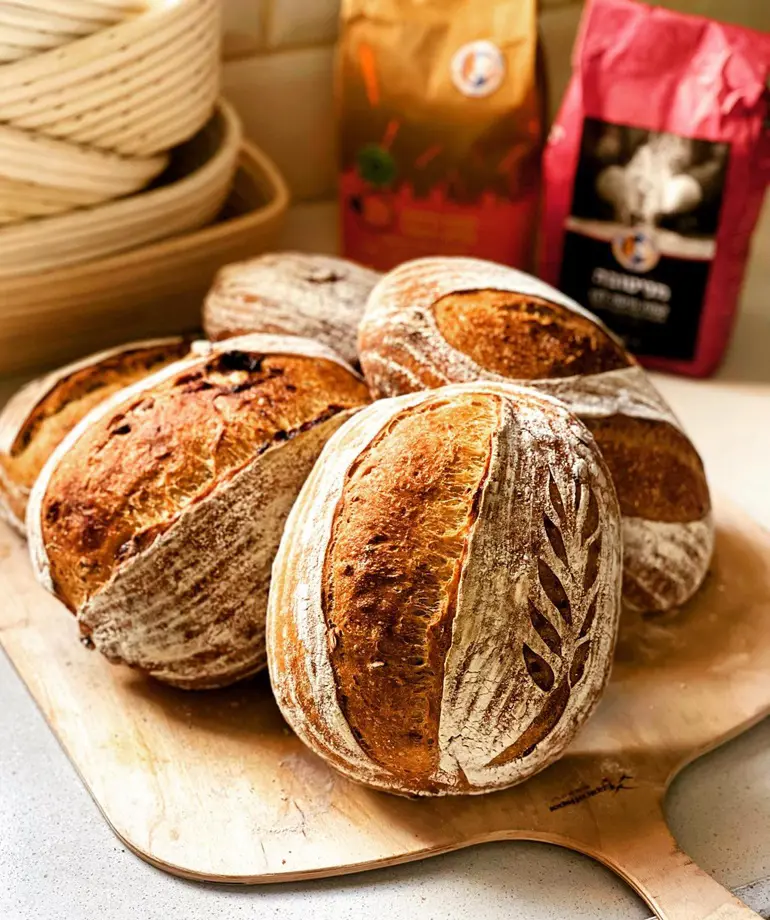
Sourdough bread is quite different from bread that uses commercial yeast or baker's yeast. The preparation of sourdough bread relies on wild yeast present in the air. Yes, you heard it right, the sour taste and chewy texture of the sourdough bread is due to the yeast activity of fermenters naturally present in the environment.
If we look at the length of the fermentation period, these breads should be provided longer as it provides enough time for the wild yeast and lactic acid bacteria to work together. In the meantime, the starches are broken down giving sourdough bread its characteristic depth of flavor, chewy texture and crunchier crust.
All these unique factors are generally absent in the bread prepared by the fast-rising method.
How Is Sourdough Bread Made?
A perfect sourdough bread requires a perfect sourdough bread starter. The starter is prepared by gathering a mix of flour and water, which is then allowed to ferment in open air. As enough yeast gathers, this causes the bread to rise perfectly.
Steps to making sourdough bread:
You won't require any extra ingredients to prepare sourdough bread. Just get ready with flour, water and salt.
1. Make the Starter:
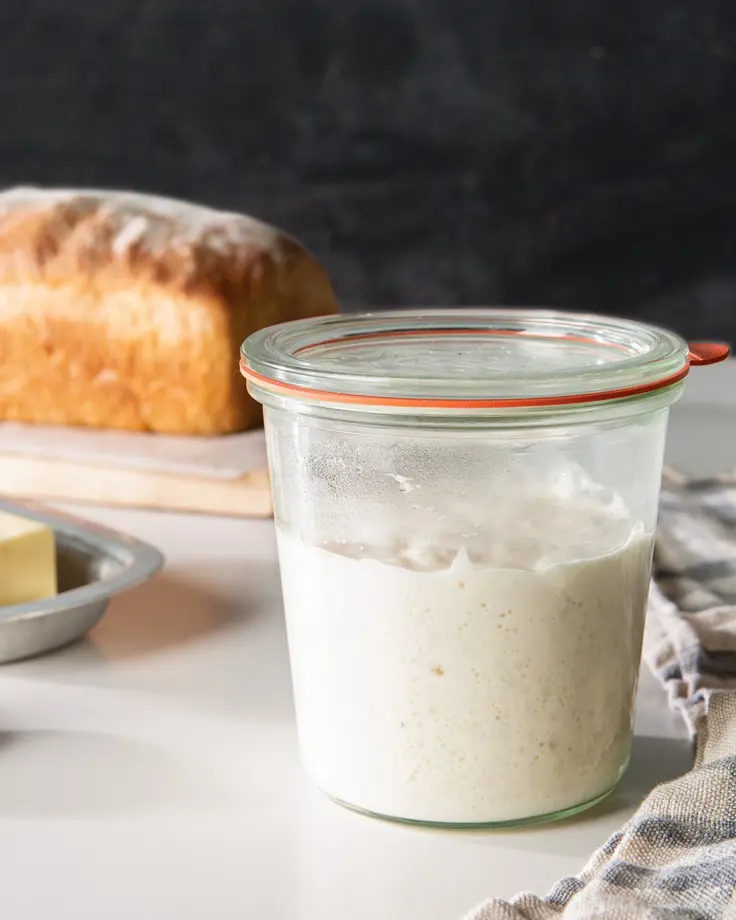
Sourdough starter can be made with any type of flour, as per your desire. As you need to keep on feeding the starter with flour repetitively, you can also use different types of flour in the next addition. Whole wheat flour, all-purpose flour and rye are some commonly used ones you can try in the recipe.
Moreover, regular tap water and regular salt work perfectly fine in the recipe.
Day 1: Mix 100g of flour and 100g of water in a clean jar or bowl. The equal proportions are perfect so that during the long fermentation period the moisture content would be as per required by the fermenters.
Further days: Keep on feeding the starter daily and after a few days you will notice bubbles and a sour smell. This is an indication that the yeast and other fermenters in the starter are working well.
2. Dough Preparation
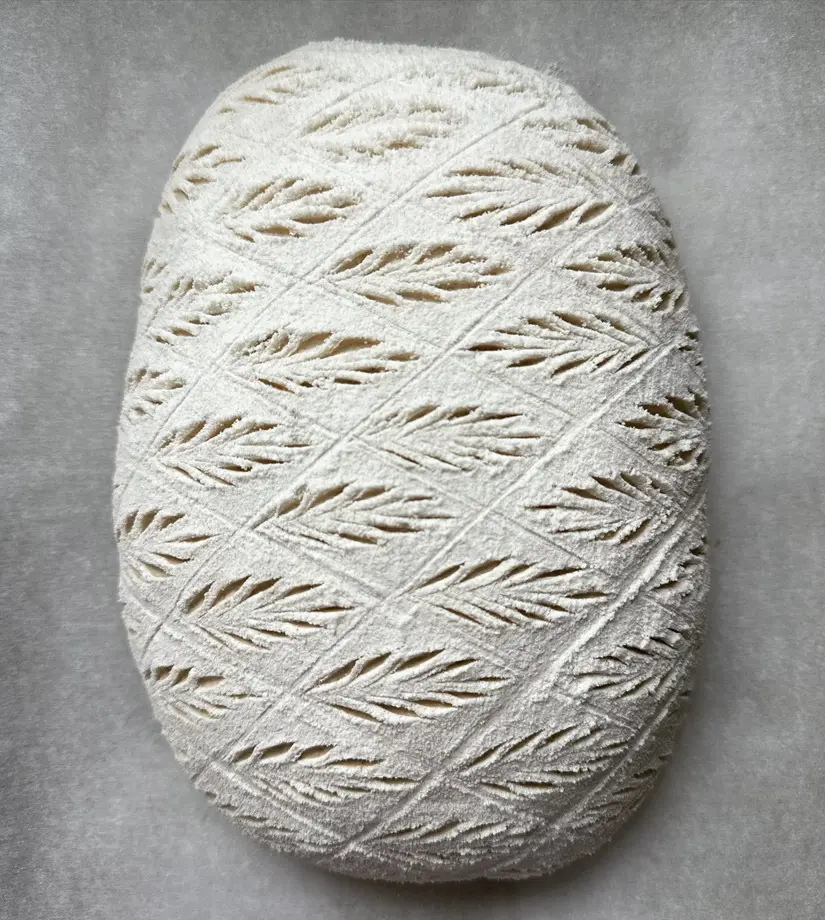
Not all the starter you prepared goes into the baking dough. As the day for you to bake sourdough bread arrives, mix a part of the starter with the flour, around 100g starter per 500g flour. Don't forget to add salt in this step.
Let the dough you prepared to rest for 30 minutes to an hour and fold it. Repeat this process four to five times so the dough gets well fermented. Commonly, the bread is scored to help it cook better as well as to make it look appealing.
3. Baking
As the dough rises completely, it's time for you to bake them. A Dutch oven or a baking cloche is the best choice for baking this bread.
Nutrition
Before jumping into the benefits of sourdough bread, let's have a look at the nutrients present in one medium slice of the bread:
- Calories: 185-189
- Carbohydrates: 35 grams
- Fiber: 2 grams
- Protein: 3 grams
- Fat: 1 gram
Apart from these major nutrients, sourdough bread also has vitamins and minerals in it. Vitamin B1 and B2 and minerals like manganese, iron and copper are present in the bread, in a notable amount.
Benefits of Sourdough Bread
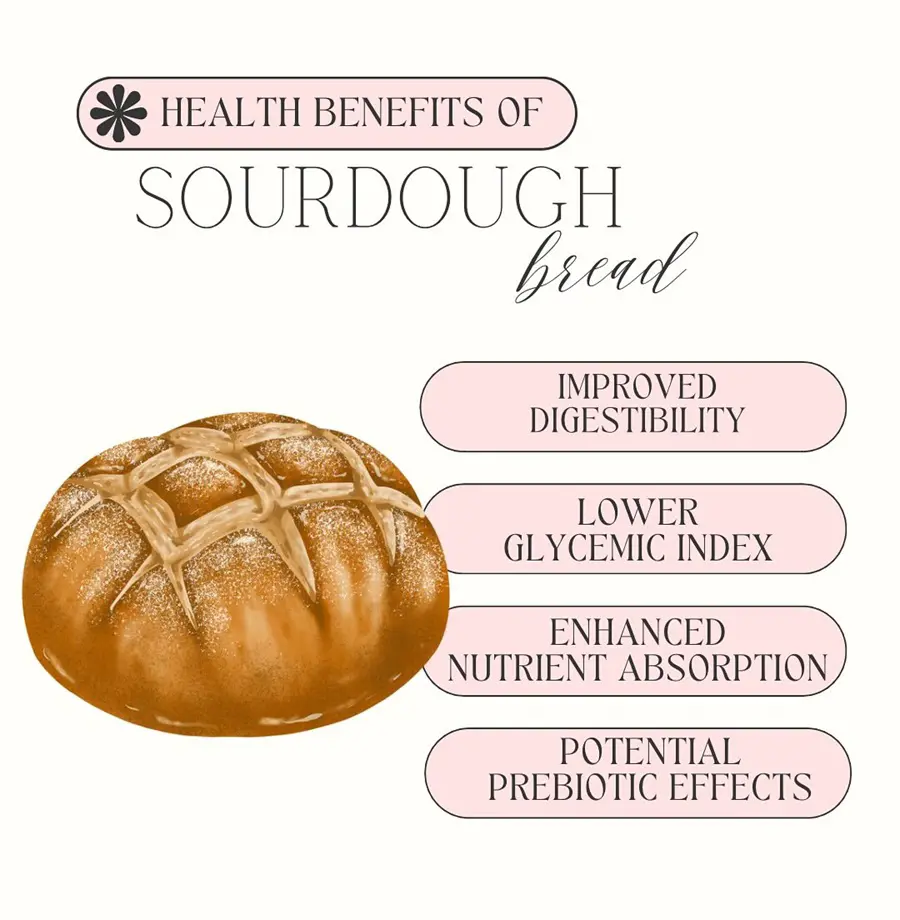
The ingredients used in the preparation of the sourdough bread and the natural yeast and lactic acid bacteria combination that ferment the bread make this bread extremely healthy. Here are several advantages of sourdough bread over conventionally yeasted bread:
Easier To Digest Compared To Traditional Bread
Sourdough is more digestible than regular types of bread, and the credit here goes to the long fermentation process, which helps break down complex carbohydrates and gluten proteins that are often difficult for the digestive system to process.
Moreover, the natural yeast and bacteria that vigorously break all the molecules also help to reduce the levels of phytates-compounds found in grains that can inhibit nutrient absorption and make the bread easier to digest.
A Lower Glycemic Index (GI)
The glycemic index (GI) is a measure of how quickly a food raises blood sugar levels after consumption. Foods with a high GI cause rapid spikes in blood sugar, while foods with a low GI provide a slower, more steady release of energy. Sourdough bread is often lower in GI compared to conventional white bread, making it a better option for those looking to manage blood sugar levels.
How Sourdough Lowers the GI:
Slow Fermentation Process: The fermentation process used in sourdough causes the breakdown of sugars, resulting in a lower glycemic index. The wild yeast and lactic acid bacteria involved in the fermentation process alter the starches in the flour, making them more slowly digestible and preventing rapid blood sugar spikes.
Better for Blood Sugar Control: Because of its lower GI, sourdough bread is less likely to cause a sharp rise in blood sugar. This is particularly beneficial for individuals with diabetes or those trying to manage their blood sugar levels, as it can help avoid insulin spikes and crashes.
Opting for sourdough over higher GI breads can contribute to more stable energy levels throughout the day, reducing cravings and promoting overall health.
A Probiotics
Sourdough bread carries the beneficial byproducts of natural yeast and fermenting bacteria, making it a good food for gut health. While making a starter for the bread, an enormous amount of these fermenters stabilize and form gut-healthy products, making them a probiotic.
Like any other fermented product, you can imagine pickle, the beneficial bacteria and their secretion can help maintain a healthy gut microbiome. Overall, you will have a healthy gut and good digestion. The probiotic content also makes it a better option than commercial bread.
Helps Body Absorb Minerals
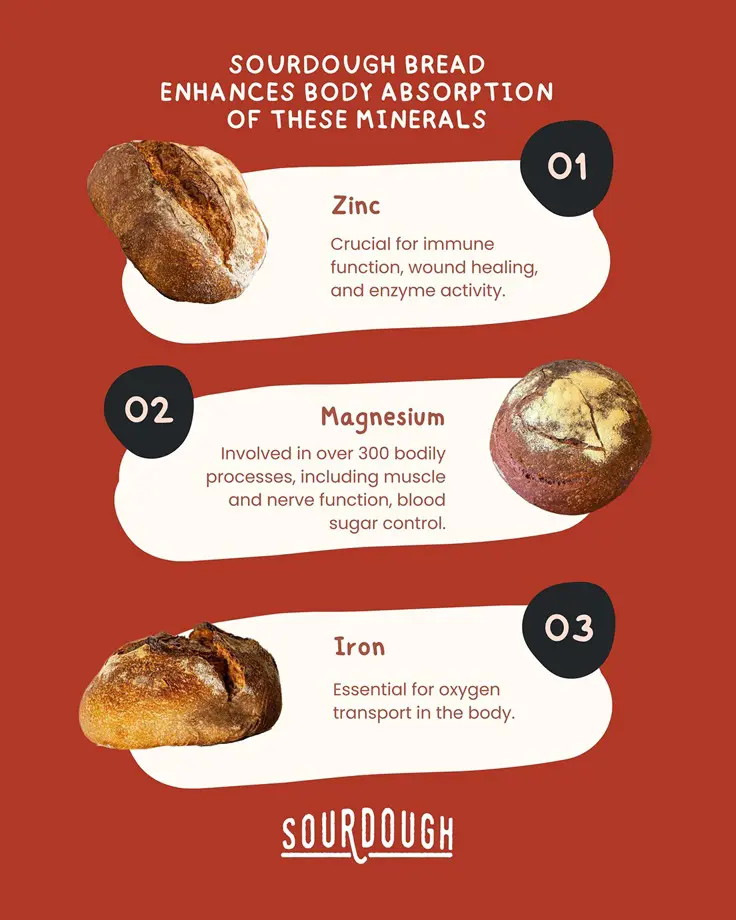
One of the unique advantages of sourdough bread is its ability to improve the body’s mineral absorption. The compounds called phytates present in whole grains are known to slow down the absorption of iron, zinc and other minerals in our body and with sourdough bread, this tendency becomes very less.
Phytate Breakdown: As the fermentation occurs for a long period, the yeast from the environment and bacteria break down a huge number of phytates. The less available these compounds are, the more the mineral will get absorbed in the body. So, by consuming sourdough bread, there is a high chance that you will be getting more beneficial minerals from your diet.
Enhanced Mineral Absorption: Minerals are important in our body and by consuming sourdough bread, their rate of absorption occurs at full pace. In turn, all the body processes run smoothly, keeping us healthier.
A Natural Option For Bread Lovers
If you are baking sourdough bread at home, you can be sure that this is the healthiest form of bread you will ever have! The depth of flavors and the characteristic chewy texture are not what we are talking about, the minimal chance of the use of preservatives or any other additives is what makes the difference here.
As you prepare a fresh batch of sourdough bread, you won't bring home the chemicals the store-bought breads are known to possess. A clean bread prepared using nothing more than salt, water and flour, what more one can ask for?
Can Be Made High In Fiber
Just like cutting out the refined flour, adding whole grain flour to the sourdough bread is also super easy. There is no such thing as flour the natural fermenters won't be processing, so you can pour in all the healthy grains on your recipe.
Any kind of wheat and rye flour are the popular ones preferred by people. The different types of whole grains you use also directly increase the fiber content of the bread. The good amount of fiber in the bread keeps the gut healthy and also has an impact on our overall health.
Are There Any Downsides?
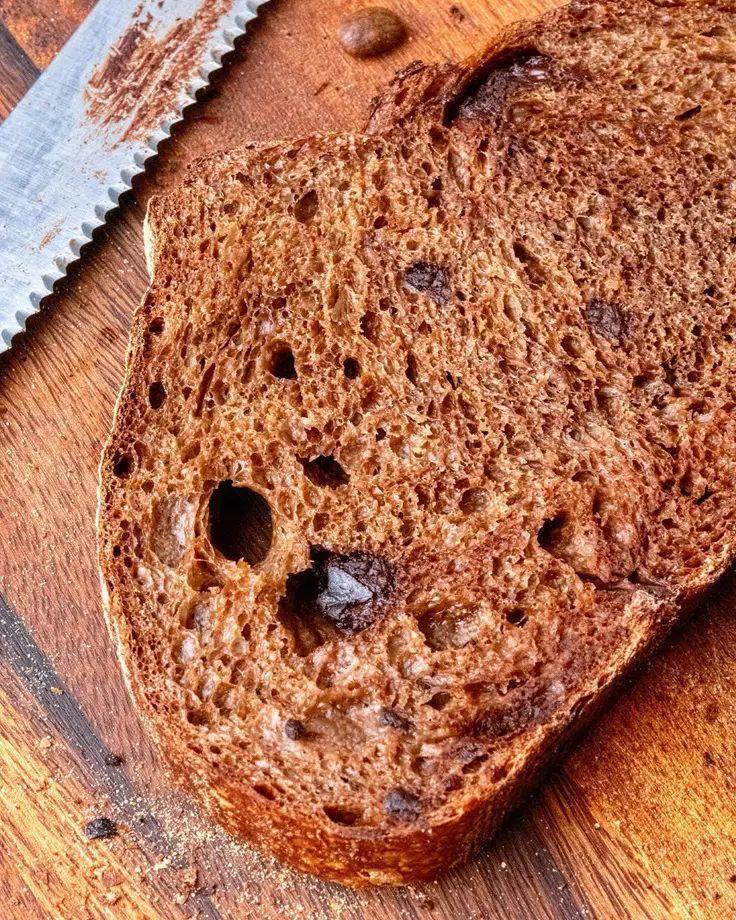
Sourdough bread is a healthy choice, but sadly not for all. Here are some considerations you must keep in mind before making it your daily bread:
Not A Good Choice For People With Gluten Sensitivity
There are people whose digestive system won't have a normal response to gluten, a nutrient naturally present in grains like wheat. And for people who think sourdough bread can be eaten by people who are sensitive to gluten, they are totally wrong!
The natural fermenters in the sourdough starter are said to metabolize the gluten present in the flour, and what needs to be highlighted here is, not all the gluten is broken down.
So, although fermented, sourdough bread poses a problem for those with gluten sensitivity or celiac disease.
Not For The Ones Sensitive To FODMAPs
FODMAPs (fructose, lactose, fructans, galactans, and polyols) are specific types of carbohydrates, that are present in certain food sources, and do no good to the gut of people who have irritable bowel syndrome (IBS).
As sourdough bread is made of wheat, it can contain high amounts of FODMAPs. There might be some confusion because some of the proportions of these carbohydrates are broken during the fermentation process.
These short-chain carbohydrates can cause bloating, gas, abdominal pain, and diarrhea in such people, so sourdough bread can make you deal with all these problems.
Although the content is lower compared to the bread we consume on a daily basis, it is not a food with low FODMAP, so it's better to avoid it.
May Not Have Expected Benefits If Prepared With All-purpose Flour
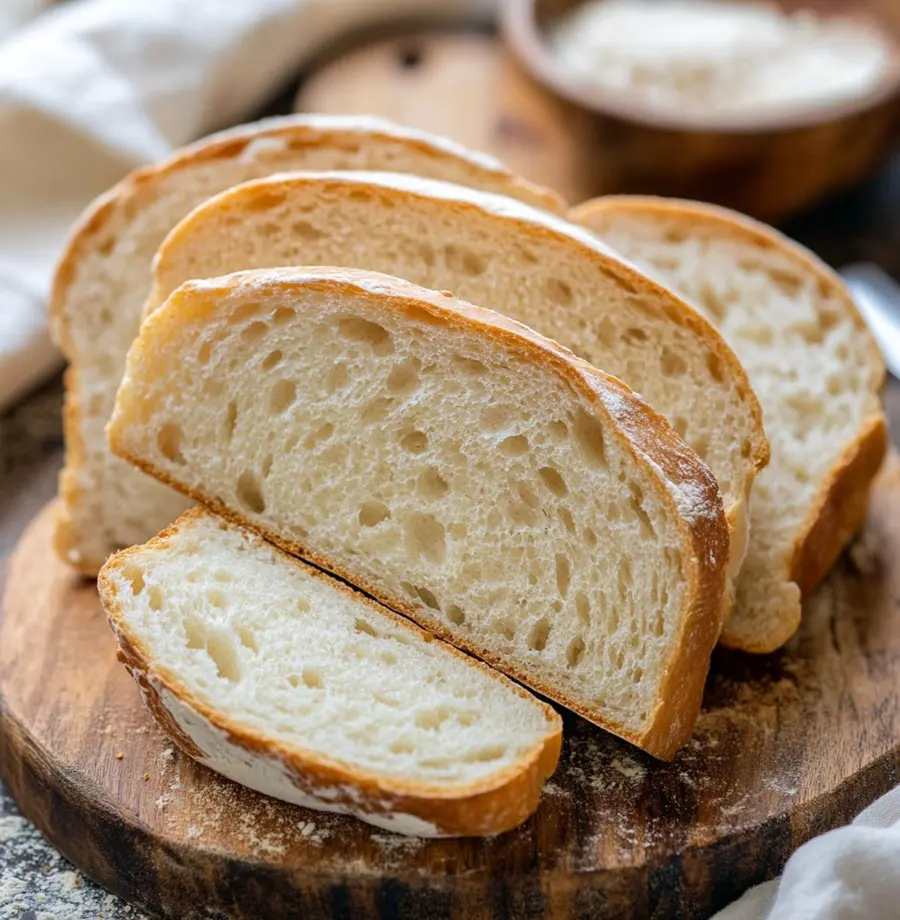
The whole-grain flour used in sourdough bread is what determines its health benefits. If the healthy flour is replaced with the all-purpose flour then the nutrition somewhat becomes similar to that of instant bread.
Prepared by totally striping the whole wheat, the regular white flour is low in nutrients and fiber. As a result, the bread won't be good for the ones checking on their sugar levels, as there won't be a guarantee that the resulting sourdough bread will have a low glycemic index.
Takes Time And Dedication
It takes several days to prepare sourdough bread. For people who are used to making bread with commercial yeast, which can be prepared and baked within a few hours, sourdough bread needs more time and also a level of skill and attention to detail.
The starter itself can not be prepared if the baker does not have patience. As it takes a few days to a couple of weeks to fully develop, during which must be closely monitored all the time, the process can feel overwhelming and time-consuming for busy people.
The long resting and rising time during the dough preparation time is only for those who enjoy the process but the hassle is definitely not for those who are in a rush. Overall, this complicated bread-making process might be daunting for many individuals, especially the ones who are new to it and are short on time.
Store Brought Ones May Have Additives
Only homemade sourdough bread can be made with pure natural ingredients, once you are out in the store to purchase sourdough bread, you will surely get the ones loaded with preservatives and artificial additives.
In commercial preparation, the breads are made focusing on increasing the shelf life of the product. So, there is a high chance that the mass-produced sourdough breads have additional ingredients that make it less favorable in terms of nutrition.
Some additives are also used to prevent the growth of mold in store-bought sourdough bread while some also might add baker's yeast. Therefore, the bread's nutritional value may not align with those looking for a more natural and wholesome product.
Bottom Line
Sourdough is a great option for those who want to avoid processed and overly refined ingredients. The minimal ingredients and natural fermentation process make sourdough a great choice for anyone looking for a more wholesome, back-to-basic bread.
Despite having benefits like easy digestibility and lower glycemic index, certain factors like the presence of gluten don't make it a suitable choice for all. Healthy individuals, who are okay with the presence of gluten and FODMAPs, can opt for this authentic and natural bread-making process, without the reliance on artificial additives or chemicals.
Recent posts
Lifestyle
Lifestyle
How To Stop Snoring: 15 Home Remedies To Get Rid Of
A huge part of population have to lose sleep just because of snoring. If we look at the data from the studies, it has been reported that around two thirds to half of the population are affected by this common issue. What makes this problem more conce...
Lifestyle
20 Foods That Are Bad for Your Heart
Sadly, cardiovascular disease ends one life every 33 seconds, and that, indeed is an extremely tragic moment. Hence, giving your heart great importance and keeping it healthy is so important for overall health, and what you eat can make a big differe...
Lifestyle
20 Foods That You Can’t Freeze
Freezing foods can be a realistic time-saver, it is one of the most convenient ways to preserve food in our kitchens for later use. It can do both, reduce food waste as well as save time in food preparation. However, there are exceptional cases...
Lifestyle
Is Agave Good For You? Benefits, Uses And Risks
When you stroll through the sweetener section at a supermarket or any other store, you probably notice bottles of golden agave nectar or agave's inulin with labels boasting claims like "natural" and "healthy". But is this viscous sweetener which come...
Lifestyle
Is Monk Fruit Healthy? Benefits, Nutrition And Risks
Monk fruit is a simple vine of the gourd family that has recently gained fame as a sweetener. The fruit is hard to find in the market and has been less cultivated around the world, it's native to Southeast Asia. A zero-calorie sweetener, there is a l...
Lifestyle
How Much Caffeine Is in Green Tea
Green tea, a tea popular for its health benefits, comes with a gentle caffeine boost. Due to this low caffeine level, the drink can be considered perfect for those who want to stay alert without the jitters. The availability of caffeine in green tea ...




